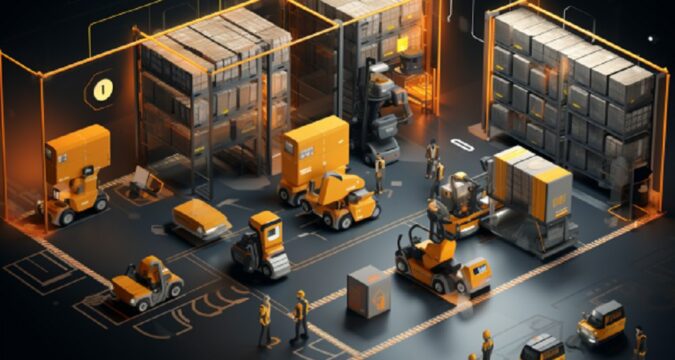
Leveraging artificial intelligence (AI) in the supply chain and logistics sector has been a game-changing development as firms continue to explore AI-powered solutions to enhance their workflow and ensure efficiency. According to a 2021 research report by Gartner, half of supply chain organizations will adopt AI and analytics applications by 2024.
The tumultuous events of 2020, when the COVID-19 pandemic wreaked havoc on global economies, manufacturing processes, and consumer behavior, can be traced to this spike in AI adoption. This unprecedented disruption has exposed the limitations of traditional supply chain management models, leaving operators uncertain about the future of their business operations.
As a result, supply chain organizations in several industries have been actively exploring innovative technologies, with many drifting toward AI due to its transformative potential. Furthermore, AI technology distinguishes itself because it can forecast demand by sifting through massive data sources.
These AI tools extract valuable insights from various sources, including historical sales data, customer transactions, social media tags, and economic indicators, using techniques such as extensive data analysis and artificial neural networks. In addition, they act as catalysts for improved collaboration among supply chain partners, allowing suppliers to share demand forecast data on the go.
AI In Warehouse Automation
Meanwhile, Autonomous mobile robots (AMRs) are already a popular tool in most supply chain warehouses worldwide. Their appeal is due to their ability to function autonomously with little human intervention.
These robots are designed to handle complex tasks by combining AI and cutting-edge technologies such as machine learning, computer vision, and sensor fusion. AMRs are also adaptable to changing warehouse layouts and operational requirements.
In environments where they must collaborate with humans, they can focus on tasks requiring creativity and problem-solving skills. At the same time, robots handle repetitive and routine tasks.
These dynamic relationships can boost workforce productivity while improving the overall efficiency of supply chain and logistics warehouse operations. Regarding quality control, various AI sensors have specialized capabilities, such as detecting flaws such as scratches, cracks, and dents or confirming correct markings and complete components.
Furthermore, predictive maintenance AI models can analyze product usage data to generate optimal maintenance schedules based on broad usage trends. In the transport industry, AI-enabled sensors are critical for monitoring product conditions.
For example, IoT-powered AI sensors can detect changes in temperature and humidity, ensuring that perishable goods are kept at the proper temperature and humidity. With this method, businesses can ensure that only high-quality products reach customers by integrating AI-powered sensors across their supply chain and logistics operations.
This not only increases customer satisfaction but also helps protect brands’ reputations.
Using AI To Streamline Procurement Processes
AI has also revolutionized procurement processes by automating time-consuming tasks. One prominent example is its use in invoice processing automation, where it assists businesses in validating invoice data.
Furthermore, it can notify supply managers of outstanding invoices, ensuring timely processing of goods and services. AI can generate purchase orders and monitor their progress without human intervention as its capabilities grow.
This level of automation significantly reduces the time and effort required for these functions to be manually completed. Beyond invoice processing to data analysis, AI also reveals patterns and trends that signify potential risks and hiccups in procurement processes.
It can, for example, effectively identify supplier performance issues or compliance violations. This proactive approach curtails imminent problems and increases process efficiency.
The application of artificial intelligence in supply chains and logistics will drastically affect the future distribution, handling, and transportation of items. Automation, predictive analytics, and other AI-powered technologies would improve supply chain processes.
These advancements improve demand forecasting, real-time shipment tracking, vehicle route optimization, and a better inventory management system. Overall, AI has the potential to reduce operating costs, identify inefficiencies, and improve customer responsiveness.




